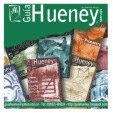by Lorena Avila Cantisani
Correspondent in Spain
soydeargentinacom@hotmail.com
Used cooking oil can have a second life if we recycle it to make new products, such as biodiesel or soap. Used oil is a residue produced daily in most households. A family of four is capable of generating between 18 and 24 liters of used oil annually. A common action to dispose of this waste is throwing it down the drain, but this has a negative impact on the environment. The right thing to do is to collect all used oil in a plastic container and place it in a storing spot for this type of waste.
When you pour used cooking oil down the sink drain, there is a risk of blocking the pipes. Fat cools down and adheres to the walls of the ducts, which acts as a sticker for other residues, forming a plug and preventing water from flowing freely.
Due to the fact that the process of separating fats and oils - performed in water treatment plants - is complicated and expensive, most oil ends up being wasted into the wrong places, such as rivers. There, oil can form a superficial film which prevents water from oxygenating, since gas exchange with the atmosphere is hindered. In addition, it adheres to the skin of fish, which alters their breathing capacity.
Currently, in Spain, the Green Spots (or storing spots) have a reception desk for all types of waste, including domestic oil. And there are several municipalities that have special containers around the city. If you do not have a service like this where you live, the least harmful thing you can do with used oil is to pour it into a plastic bottle and throw it away with other types of waste. As a biodegradable material, it will eventually end up as grass, since microorganisms will decompose it and integrate it into the natural cycle of matter. Another choice to get rid of used oil is to reuse it in the production of soap, a simple recipe affordable for any consumer.
When you pour used cooking oil down the sink drain, there is a risk of blocking the pipes. Fat cools down and adheres to the walls of the ducts, which acts as a sticker for other residues, forming a plug and preventing water from flowing freely.
Due to the fact that the process of separating fats and oils - performed in water treatment plants - is complicated and expensive, most oil ends up being wasted into the wrong places, such as rivers. There, oil can form a superficial film which prevents water from oxygenating, since gas exchange with the atmosphere is hindered. In addition, it adheres to the skin of fish, which alters their breathing capacity.
Currently, in Spain, the Green Spots (or storing spots) have a reception desk for all types of waste, including domestic oil. And there are several municipalities that have special containers around the city. If you do not have a service like this where you live, the least harmful thing you can do with used oil is to pour it into a plastic bottle and throw it away with other types of waste. As a biodegradable material, it will eventually end up as grass, since microorganisms will decompose it and integrate it into the natural cycle of matter. Another choice to get rid of used oil is to reuse it in the production of soap, a simple recipe affordable for any consumer.
Recipe: Recycling used oil to make homemade soap.
The first step is to filter oil in order to remove impurities and solid waste. Pour 125 ml of cooking oil with 100 ml of water into a large bowl and beat the blend until it turns into a cream. Then add 20 grams of lye and stir gently for half an hour, or the time it takes to form a rubbery, thick mixture. Lye can be purchased at any drugstore, and must be handled carefully. Use protective gloves: lye is a highly corrosive substance.
You can add some essential oil or fabric softener to improve the aroma of the finished soap. The mixture will be hot after adding lye, so let it cool down until the next day. Once cold, the resulting solid mass can be cut into soap bars.
This type of soap is very useful for washing clothes and dishes, rather than as body soap because its pH is not controlled.
You can add some essential oil or fabric softener to improve the aroma of the finished soap. The mixture will be hot after adding lye, so let it cool down until the next day. Once cold, the resulting solid mass can be cut into soap bars.
This type of soap is very useful for washing clothes and dishes, rather than as body soap because its pH is not controlled.
In Argentina there are many business and industrial sites that sell and buy used oil. Some restaurant owners and ordinary citizens buy the services offered by these companies to collect used oil into suitable sealed containers that are periodically removed.
Wherever you live, if you will not immediately take used oil to a recycling center, never store it in empty food, beverage or chemical containers. Make sure the container is clean and clearly labeled "Used Oil" ("Used Oil.").
Wherever you live, if you will not immediately take used oil to a recycling center, never store it in empty food, beverage or chemical containers. Make sure the container is clean and clearly labeled "Used Oil" ("Used Oil.").
Remember that environmental quality is everybody's business, and we can all help.
Solidifying oil
Solidifying oil
An option for better handling of oil, either to take it to a collection spot or to throw it away, is to use a solidifying product that is added to the pan when oil is still hot. In about an hour, oil will become a solid stuff which you can easily grab.
On the other hand, domestic oil can be processed for the production of biodiesel. This involves, among other actions, filtering and adding substances that improve combustion in diesel engines, which do not require any alterations to run on this fuel. In addition, biodiesel is not toxic; it is biodegradable and produces fewer pollutants than traditional diesel. It is a clean, renewable fuel.
On the other hand, domestic oil can be processed for the production of biodiesel. This involves, among other actions, filtering and adding substances that improve combustion in diesel engines, which do not require any alterations to run on this fuel. In addition, biodiesel is not toxic; it is biodegradable and produces fewer pollutants than traditional diesel. It is a clean, renewable fuel.


